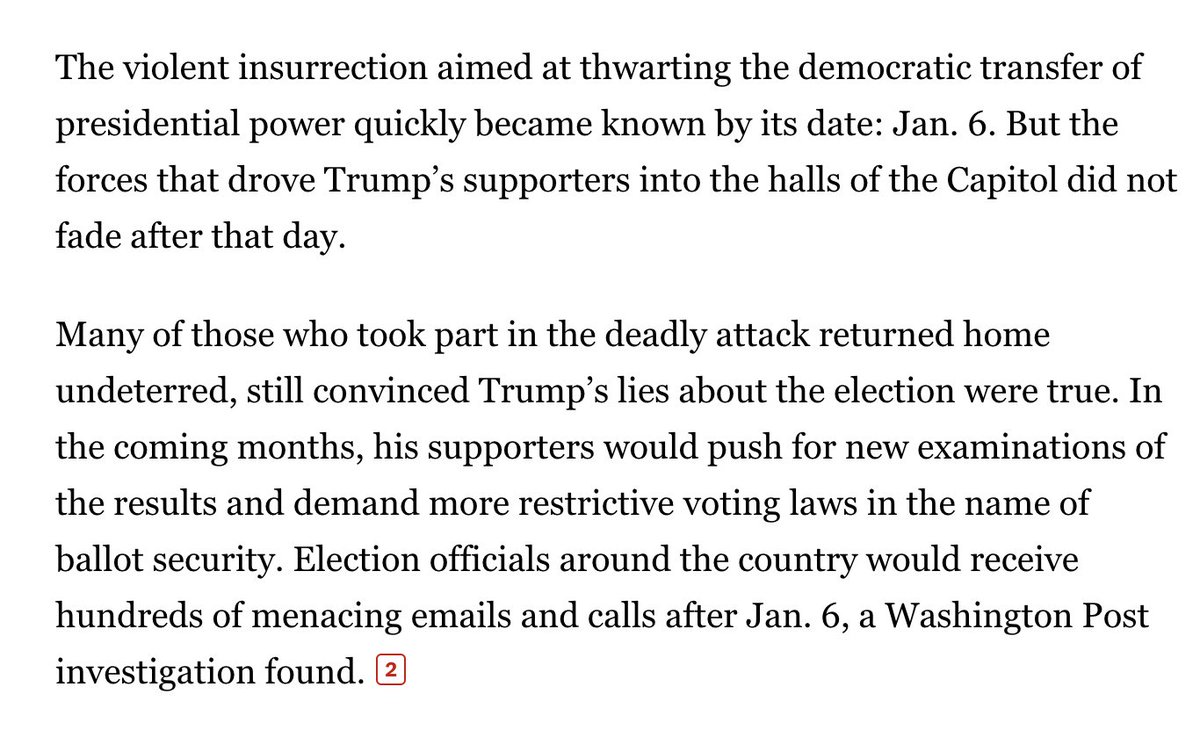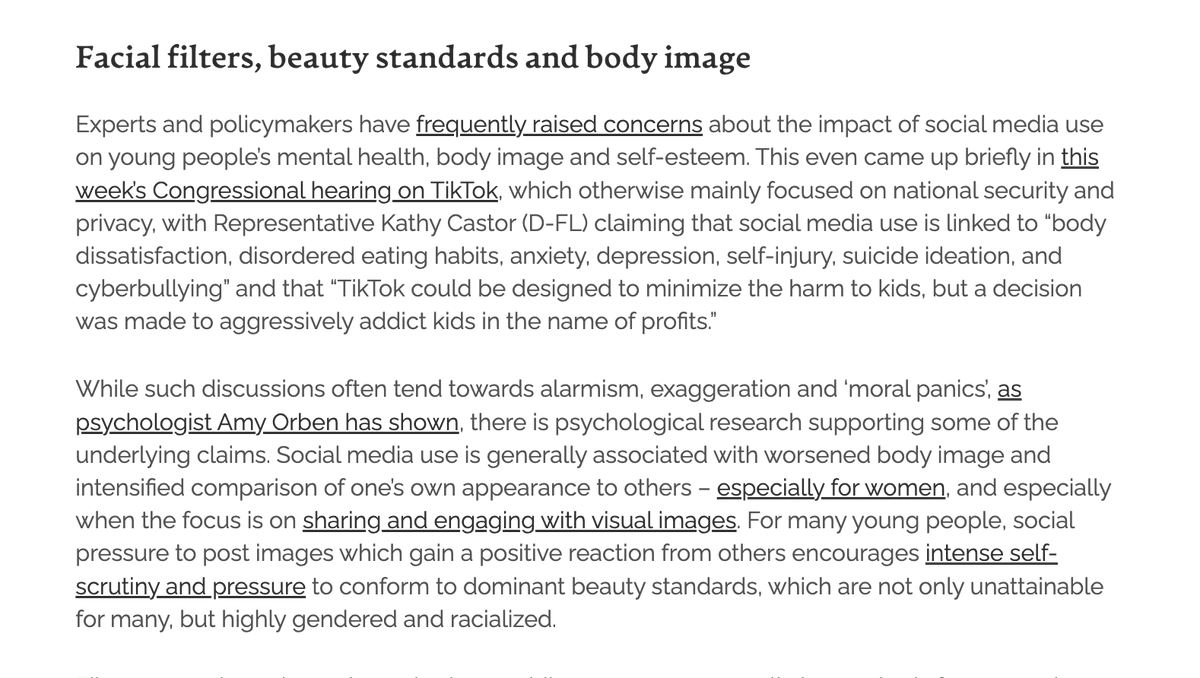1/ Good morning. Yesterday the Washington Post published a very important report on January 6- before, during, and after. I reckon it's one of the most important accounts published anywhere to date. It is full of new reporting and detail. washingtonpost.com/politics/inter…
2/ The article opens with the incredible account of Donell Harvin, a homeland security official who convened the nation's fusion centers which- for the first time since 9/11- were blinking red "coast to coast". He even told DC to prepare for mass casualties ~48 hours in advance. 

3/ Based on interviews with more than 230 people and thousands of documents and multimedia assets, the report finds the "red flags were everywhere" and were compounding even weeks before the attack. 

4/ We learn more about the FBI's mishandling of warnings, including confusion over how to deal with the volume of threats. And we learn here what has seemed obvious for months- FBI Director Christopher Wray was playing politics. This reeks of cowardice: 

5/ This appears to again confirm the idea that senior military leaders feared putting the Guard on the ground because they worried then President Trump might try to use it as an instrument in the coup. 
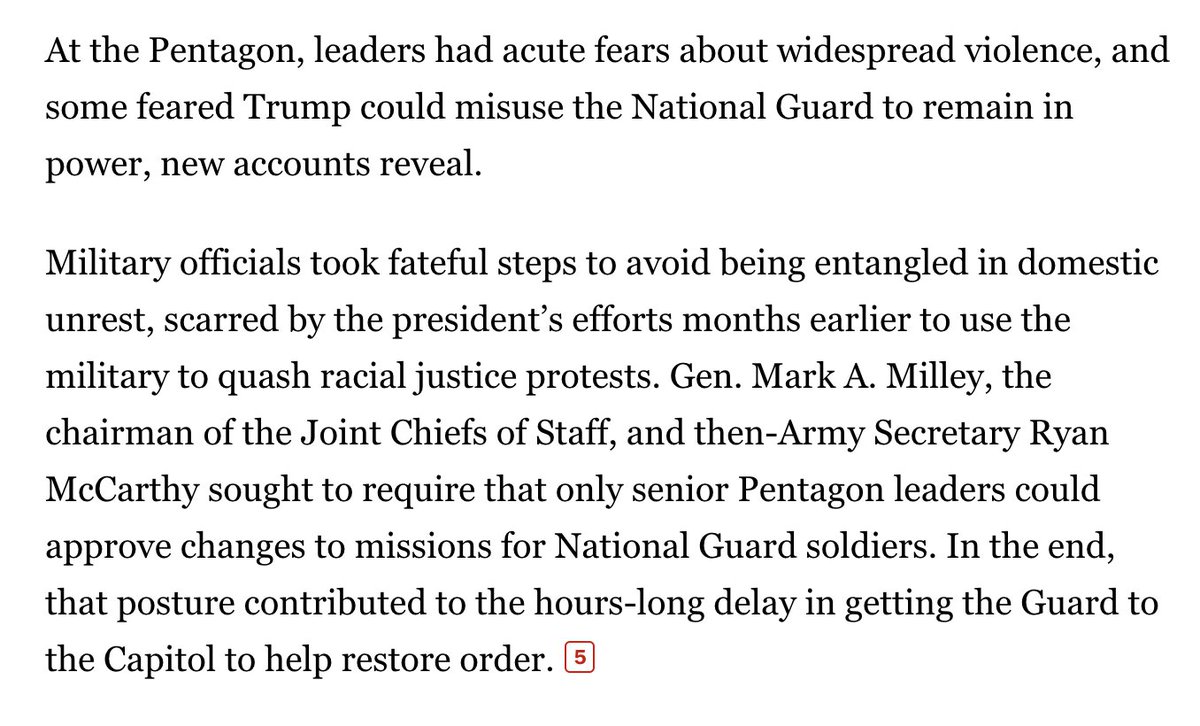
6/ The "before" section of the piece details the compounding furor over false election claims- @GrahamBrookie and @jaredlholt are quoted about the stirrings of extremists immediately after election day. 

8/ Fascinating section here suggests posters were getting around content moderation rules by inserting words like "peaceful" into their chats. "Mitt Romney peacefully gets it first," said one. 
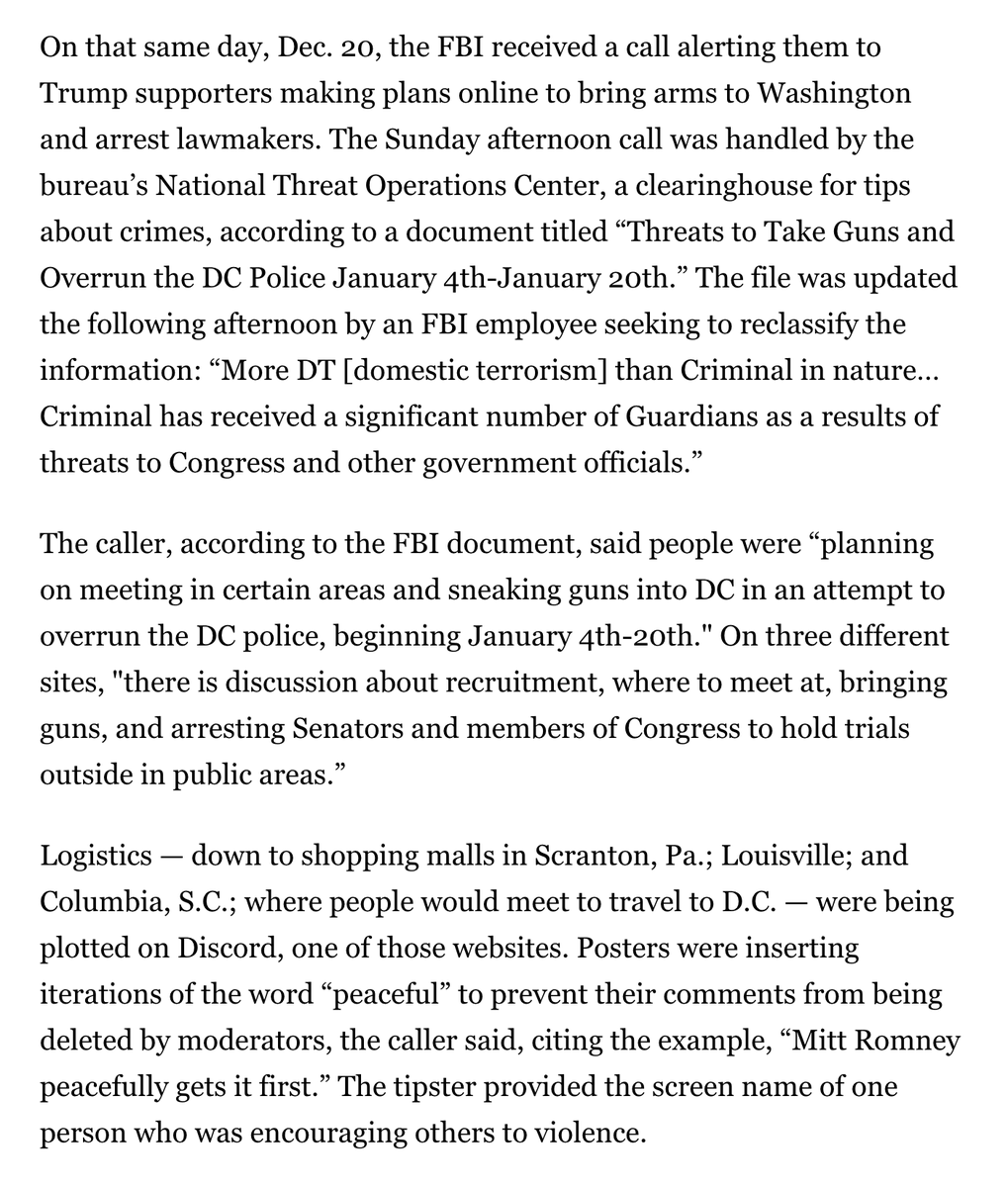
9/ This junior analyst basically predicted the RNC and DNC bombs, and the general confusion at the Capitol. 

10/ The concerns of senior military leaders are detailed again, including the fear Trump would attempt to use the National Guard to accomplish his coup if they were put on the street. 

11/ More detail on the role of Jack Donohue, the former NYPD analyst who became director of intelligence for the Capitol Police who understood the threat, but he was apparently hampered by his tenure in the role. 

12/ It is still not known which of these "larger" social media firms were sending posts to the fusion center in Northern California, but this offers more evidence that the FBI was receiving real time threat information from multiple social media firms. 

13/ The Norfolk memo, the final warning from the "multibillion-dollar security apparatus built in the wake of 9/11", ignored because.... white people. 



16/ The new details reported by the Post about the role of Trump lawyer Eastman are just incredible. This was a coup attempt, and Eastman believed he had the legal authority to push it through. 

18/ Only after the 4:17 Trump tweet did the Army approve putting the Guard on the street, presumably because they may have felt more satisfied Trump would not use them to further advance his effort to stop the certification of Biden's victory. 

20/ The final section of the report is called, aptly, Contagion, detailing the way that violent threats and disinformation have continued to spread across the country following the insurrection. 
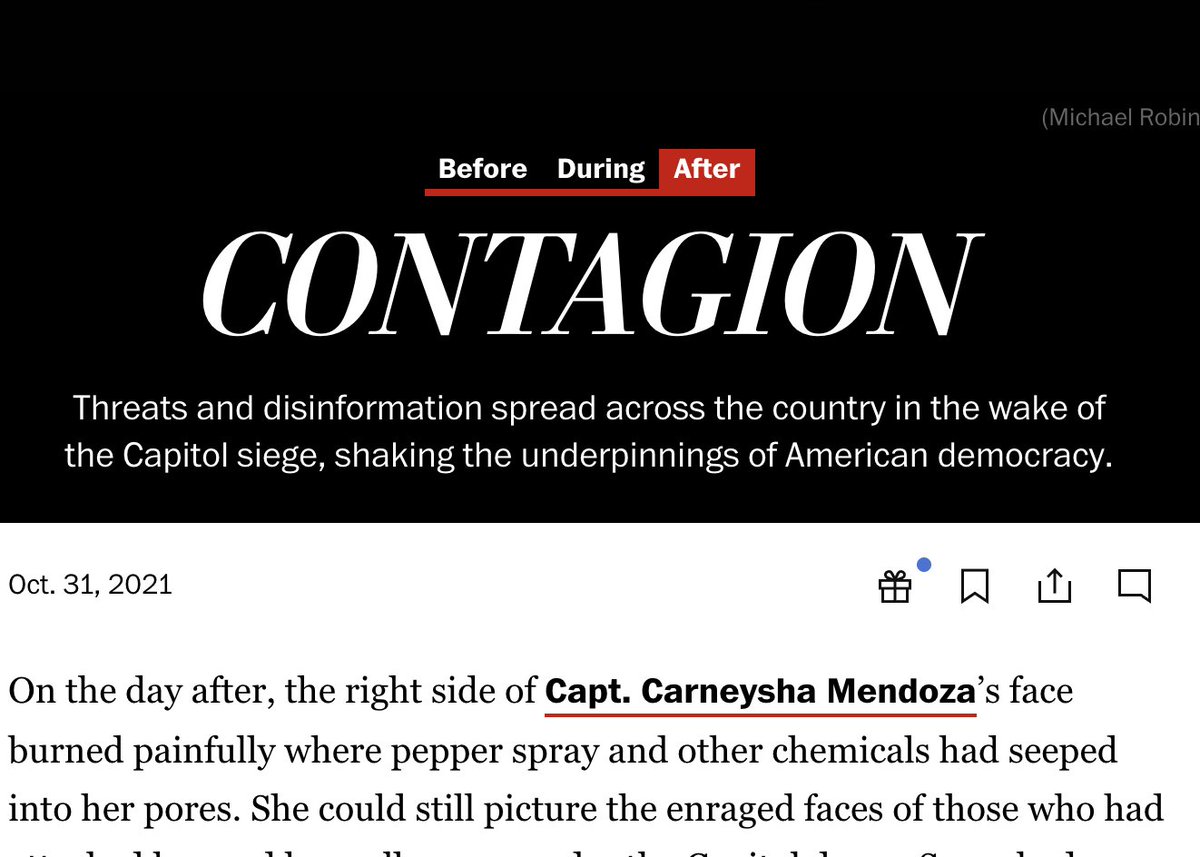
22/ More on the alleged bias at the FBI against taking the threat from white "largely law-abiding" protestors seriously. 

23/ All of that social media data- combined with video and other forms of data- became useful post facto to investigators tracking down the insurrectionists. 

24/ The insurrection failed in the short term, but in the long run may indeed achieve its objective. 

• • •
Missing some Tweet in this thread? You can try to
force a refresh






